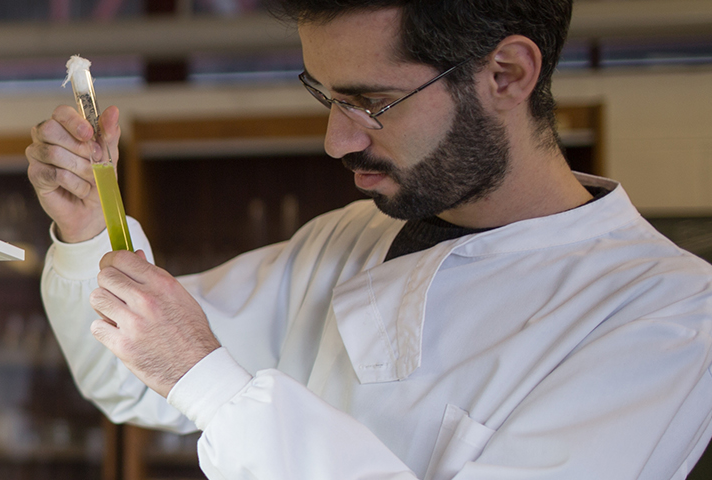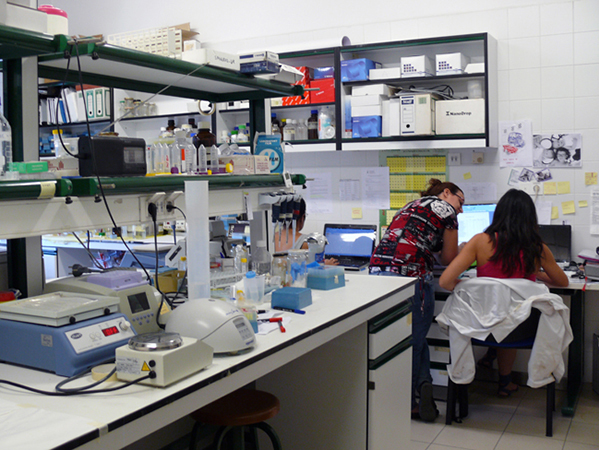Researchers
Rural and mountain regions, specially cross-border areas, are being deeply affected by core-periphery dynamics. This factor causes a gradual isolation and demographic decrease in non-central areas, which are heavily suffering a depopulation process.
But mountains are also a wonderful laboratory for research, experimentation and innovation and for developing new uses related to emerging technologies. They are also territories which are living the environmental transition of our societies and experiencing their impacts and threats. Apart from conserving and managing a common cultural (and natural) heritage, rural and mountain territories, through research partnerships, must contribute to structuring the European area.


Given this potential and attractiveness, the UNITA universities, which are solidly anchored in their territories, propose to set up an experimental model by de-compartmentalizing approaches and policies and thus offering a profoundly renewed vision.
The objective is to define a framework for action shared by all the public or private stakeholders of the territories wishing to get involved under the UNITA leadership, contributing in this way to reinforce Smart Specialization Strategies and to build a model of sustainable development for rural areas aligned with the European Green Deal and the Sustainable Development Goals. The UNITA strategy is firmly committed with the three Os policy as defined by the European Commission in 2016: Open Innovation, Open Science, Open to the World.
In order to contribute to the sustainable development of their territories UNITA research and innovation will focus during the first phase of the project on three main thematic areas:
- Renewable energy: energy transition and resource management.
- Circular economy, includind Bio-economy: networking and opening-up of economies.
- Cultural heritage: enhancement of the heritage and identity of the territories.
Through these three main areas UNITA can contribute to the development of rural and mountain areas through promoting the value of the natural resources, developing networks of circular economy (including bio-economy), linking different economic activities (agriculture, tourism, industry and crafts), promoting the richness of the cultural and linguistic heritage, and optimising the relationship among the different actors of each ecosystem.
UNITA proposes an action plan based on the launching of three Research and Innovation Thematic Hubs as the main tool to reach the following objectives:
- Focusing research on territories: Formalizing research and innovation projects around the three thematic areas in connection with the local ecosystem.
- Identifying actors in the three main areas: a cartography of research
- Designing models for UNITA R&I Hubs
- Implementing UNITA R&I Hubs connecting all stakeholders: a R&I strategic five-years plan
- Connecting research and education: Embodying the research results into the teaching at all the learning levels.
- Introducing bachelors’ students to research through micro-credentials, when possible in the rural and mountain territories
- Fostering research-based master education though summer / winter school
- Enhancing links among the UNITA PhD programs
- Energizing the territories: Revitalising the mountain and rural areas through life-long learning and entrepreneurship.
- Transferring research results for life-long learners
- Connecting with stakeholders: a network of Liaison Services
- Enhancing entrepreneurship and employment: co-working spaces and business incubators
This model, which has to be designed and implemented during the period 2020 – 2023, will be then evaluated to assess its impact and transformative capacity on the territory, on research-driven learning, and on life-long learning, employment and entrepreneurship. If the results are positive, it will be expanded with the necessary modifications in order to extend it progressively to other thematic areas. First of all, those that have a more direct relationship with the development of rural and mountain territories and that best fit the Smart Specialization Strategies of the UNITA regions (for instance, veterinary, food production, environmental sciences, cultural and naturel tourism, among many others). The objective is to extend in the long-term the coverage to all the thematic areas that can be addressed through a coordinated collaboration of all public and private actors in each ecosystem.